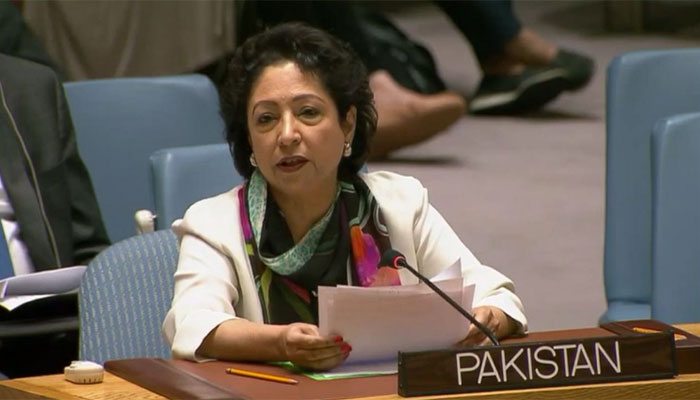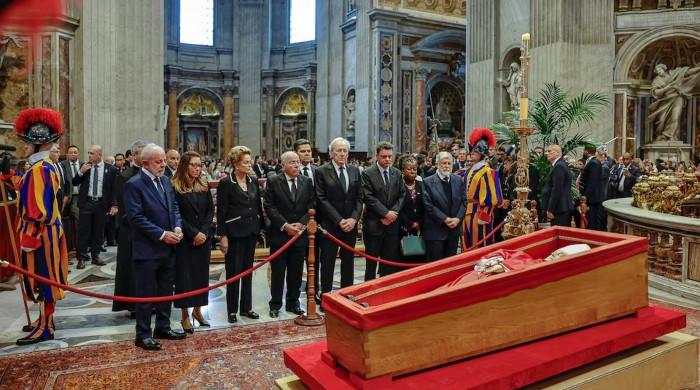Regional tensions, power politics in Middle East can trigger conflict: Lodhi
According to the Pakistani envoy in UN, geostrategic landscape of the Middle East is dominated by a complex interplay of multiple and intersecting fault-lines
June 26, 2018

NEW YORK: Permanent Representative of Pakistan to the United Nations (UN) Maleeha Lodhi remarked on Monday that regional tensions and big power politics in the Middle East can trigger a wider conflict.
Speaking at the UN Security Council (UNSC) debate on the Middle East and North Africa, Lodhi said the geostrategic landscape of the Middle East is dominated by a complex interplay of multiple and intersecting fault-lines.
She added, competing interests of regional and big powers have fueled greater instability and pushed the region into a vortex of turmoil and violence.
According to the Pakistani envoy, a comprehensive approach is needed to effectively address the multiple challenges.
“Anything less would not work — for we know all too well that unilateral measures driven by narrow interests and false assumptions have only brought suffering to the people of the region,” she emphasised.
The Pakistani ambassador also criticised those external actors in the region who were trying to shape it according to their own political preferences.
“Nowhere is this unfortunate spectacle more apparent than in Palestine. The two-state solution is tragically being dismantled in full sight of the international community,” she commented.
Inaction by UNSC
Lodhi lamented inaction by the UNSC on the issue of Palestine and said this had only worsened the situation in the region.
She pointed out that when the Palestinians observed their ‘Great March of Return’, “the killing fields of Gaza were drenched in the blood of over 130 innocent Palestinians. Yet the Security Council stood as a bystander to the plight of the long-suffering Palestinian people”.
The Palestinian issue, ambassador Lodhi said, is not a byproduct of conflict in the Middle East, it is the primary source of instability in the region.
“The road to peace in the Middle East lies in a just settlement of the Palestinian issue”, she emphasised and added that the edifice of peace cannot be built without the foundation of justice.
Successful conduct of Iraq parliamentary elections
Speaking about the parliamentary elections in Iraq last month, Lodhi termed them as “as a successful model of inclusive and representative political participation”.
Need for urgent political engagement in Syrian
On the conflict in Syria, she emphasised the urgency for an intra-Syrian process of political engagement.
“Much as progress may be slow, every forward step on this path is a gain for peace in the country”, she said.
Calling for a political outcome to the grim situation in Yemen, the ambassador said the urgent humanitarian assistance for over 22 million people necessitates a political resolution of the conflict there.











